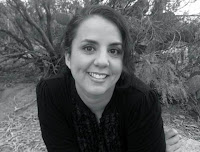 |
| Photo: wolfgangphoto |
Then, if you're like me, you start the earnest work of thesis and panic sets in. All the parts that fit so elegantly in your mind now appear to be clumsily hacked together. Suddenly you don't have an amazing book. You don't have any book at all, only a mess of hundreds of disconnected pages. But luckily over the last month I've stumbled across a few strategies are are helping me continue to work. Not to spontaneously produce some brilliant manuscript, but to slowly keep writing, producing sentences then paragraphs that are imperfect but satisfying.
And so in case these tips might be useful to your thesis or similar project, here are my top survival tactics:
1. Find your people
Being part of a thesis group is critical. Determine what kind of group is helpful for your process: a critique group that will push you to hone exactly what you are saying, or maybe an inspiration and writing group, where you meet with others, come up with prompts and just write like mad.
I've found that I need a group to simply support, encourage, and hold me accountable. In my thesis group, we discuss our struggles and successes, cheer each other on, and read a few pages aloud. In particular, the act of reading work aloud reminds me to continue writing in order to communicate and connect, keeping me motivated from week to week.
2. Your thesis might not be a book
In this lovely essay on the Brevity blog, Tabitha Blankenbiller recounts her journey from an ambitious undergraduate to a more thoughtful writer as she worked on her MFA thesis:
I stopped stretching on my tiptoes for a narrative that would fill 265 pages and moved to personal essays. This allowed me to zero in on structure, on picking words with care, to be theatrical in doses and precise in droves. I told stories, moments, snippets well, instead of a long journey poorly.She warns of the dangers of talking about your thesis as if it were a book and the value of keeping the work private until it is ready for critique:
Imagination is precious and ideas are fleeting. Even if it seems obsessive or superstitious or pathological to squirrel my work away, I’m finding the peace to draft more than worth the antisocial tendencies not sharing my early work produces.
3. Fail, but fail better
I often re-read Zadie Smith's essay, Fail Better to remind myself that writing is constantly an act of failure. Our work is never quite what we hope or imagine it could be, but we need to continue struggling to fail better and to be awake to language and meaning:
... in each of my novels somebody "rummages in their purse" for something because I was too lazy and thoughtless and unawake to separate "purse" from its old, persistent friend "rummage". To rummage through a purse is to sleepwalk through a sentence - a small enough betrayal of self, but a betrayal all the same. To speak personally, the very reason I write is so that I might not sleepwalk through my entire life. But it is easy to admit that a sentence makes you wince; less easy to confront the fact that for many writers there will be paragraphs, whole characters, whole books through which one sleepwalks and for which "inauthentic" is truly the correct term.
4. Go on a poetry diet
After a recent reading by poets Deborah Keenan, Jim Moore, and Christopher Howell, I resolved to go on a poetry diet, taking a break from essays and memoirs. I have spent the last several years studying structures and strategies of nonfiction books, but now that I'm immersed in my own thesis, I simply need to trust that these forms are embedded in my instincts. When I read nonfiction books right now, I'm too easily tempted to drop my current ideas and embrace the form of the book I'm reading.
But poetry, especially brief poems, help me find a stillness, to remember my appreciation for language and imagery. The act of reading becomes precise and focused as I absorb how an arc can be honed through just a few lines. Poems like this one that Deborah Keenan opened the reading with in honor of Adrienne Rich:
Picnic
Sunday in Inwood Park
the picnic eaten
the chicken bones scattered
for the fox we'll never see
the children playing in caves
My death is folded in my pocket
like a nylon raincoat
What sunlight is it
that leaves the rocks so cold?
- Adrienne Rich







